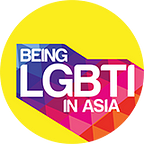New study highlights need for legal protections to reduce marginalization of transgender people in Thailand
2 May 2018
Transgender people continue to experience marginalization and exclusion in Thai society because of a lack of legal protections. This is a key finding from a new study on legal gender recognition launched on 2 May at a national level meeting in Bangkok.
Today’s meeting brought together over 60 participants from Government, civil society, academia, the National Human Rights Commission of Thailand and development partners to discuss laws, regulations, policies and practices that impact on transgender people’s right to recognition before the law. The Multi-Stakeholder National Roundtable Discussion on Transgender Legal Gender Recognition in Thailand was organized by the United Nations Development Programme (UNDP) and the Department of Women’s Affairs and Family Development of the Ministry of Social Development and Human Security.
“In Thailand, the Department of Women’s Affairs and Family Development recognizes the different challenges faced by people whose gender identity do not match their sex assigned at birth,” said Lertpanya Booranabundit, Director General, Department of Women’s Affairs and Family Development. “We hope that the findings of the joint study released today, Legal Gender Recognition in Thailand: A Legal and Policy Review, and inputs from this multi-stakeholder meeting can serve as a valuable resource to influence policies that will protect the rights of transgender people.”
The failure to officially recognize a person’s gender identity, including name and gender marker, in public registries and key identity and citizenship documents affects the ability of transgender people to navigate daily life — everything from job applications, to banking, to receiving an educational degree, to picking up a parcel. In the absence of adequate legal recognition, transgender people are excluded. Such exclusion increases vulnerability to discrimination and violence, and is a serious barrier to accessing health care and social services.
“The movement for greater inclusion of LGBTI people has made significant gains here in Thailand,” said Deirdre Boyd, UNDP Resident Representative during her opening speech. “However, the vast majority of transgender people are still unable to obtain any official identification documents that reflect their gender identity. Legal gender recognition is an important requirement for transgender people to meaningfully participate in society and to prevent discrimination.”
The new study, jointly developed by UNDP and the Department of Women’s Affairs and Family Development, illustrates how the absence of a law that enables transgender people to change their title, sex or gender on official documentation can create significant barriers to social inclusion, access to health and social services and enjoyment of human rights.
The study is part of a larger regional initiative, jointly implemented by UNDP and the Asia Pacific Transgender Network (APTN), which undertook a comprehensive review of existing laws, policies and practices related to legal gender recognition for transgender people in Bangladesh, China, India, Nepal, Pakistan, Philippines and Thailand.
The Thailand report points to the many challenges faced by transgender people due to the absence of legal gender recognition. Transgender people face discrimination in accessing employment, in education settings and access to justice. For instance, in schools there is no specific protection for transgender people from discrimination. Most students in Thailand are still required to wear school uniforms that matches their sex assigned at birth throughout all levels of education, including at university.
This study on legal gender recognition in Thailand documents these challenges and assesses progress in Thailand. The report includes a detailed review of relevant laws, regulations, court decisions and policies, with the aim of providing a robust basis for strategic planning to overcome barriers facing transgender people.
One of the key goals of the two-day meeting (2–3 May) is to contribute to the ongoing discussions by the government and civil society groups in Thailand to develop a draft gender recognition act. The roundtable will also facilitate south-south learning, with government and civil society representatives in attendance from Cambodia and Viet Nam, who are in various stages of developing their own gender recognition laws. Discussions will be held on good practices and common difficulties in developing and implementing related legislation and policy, with inputs from international experts from Argentina and Malta, as well as from the World Professional Association for Transgender Health and APTN.
“The issue of legal gender recognition concerns everyone, not just transgender or LGBTI people,” said Note Jetsada Taesombat, Co-founder and Executive Director, the Foundation of Transgender Alliance for Human Rights. “Concerned government agencies and other stakeholders must create a process that is participatory and allows voices of the community to be heard. Only then can the proposed law address the challenges and truly respond to the needs of transgender people.”
Contact information
Suparnee (Jay) Pongruengphant
National Project Officer — Governance, Human Rights and LGBTI
United Nations Development Programme Thailand
Email: suparnee.pongruengphant@undp.org
Mobile: 0817143954
Originally published at http://www.th.undp.org/ on 2 May 2018.
